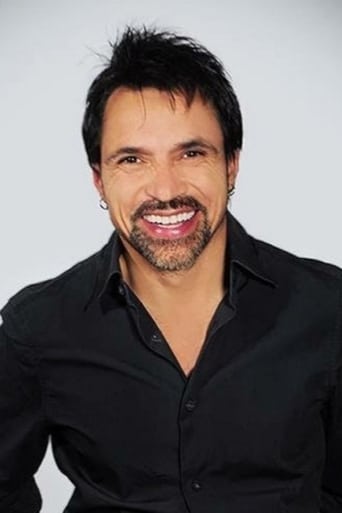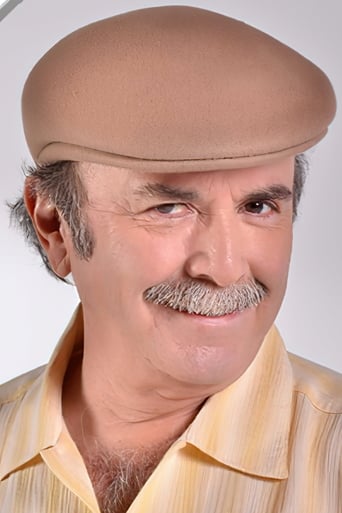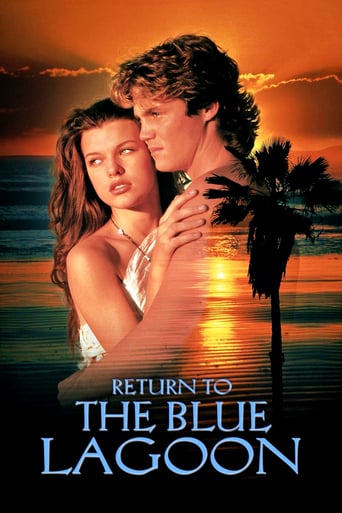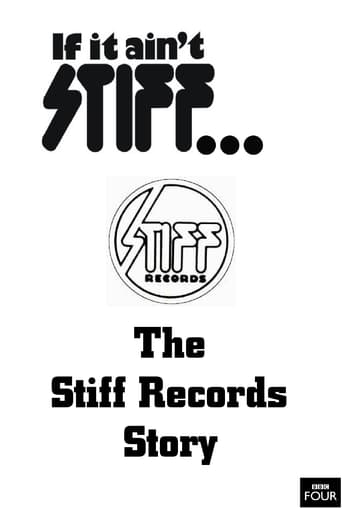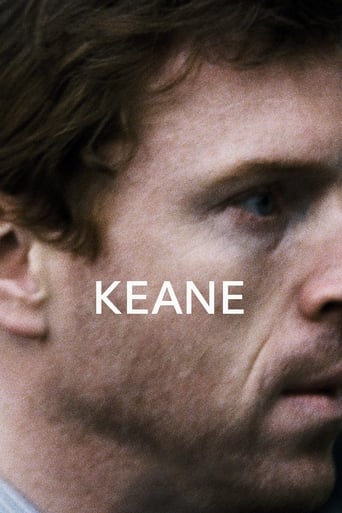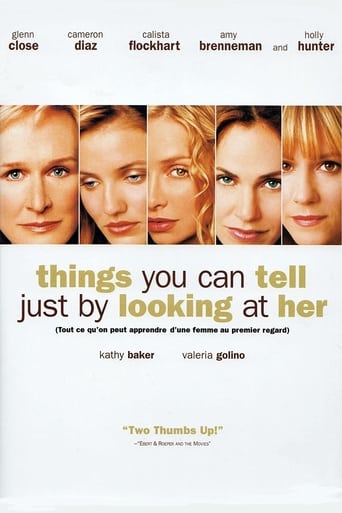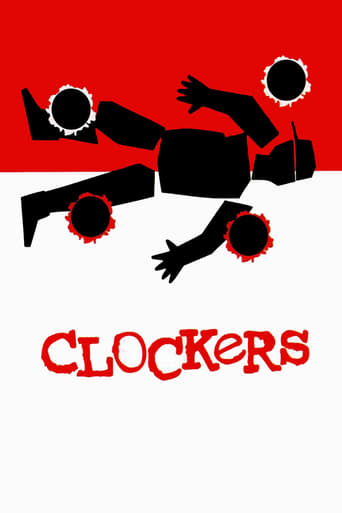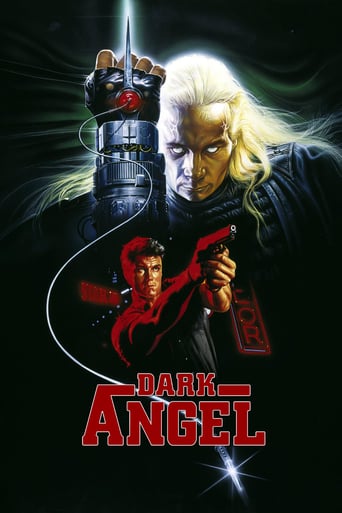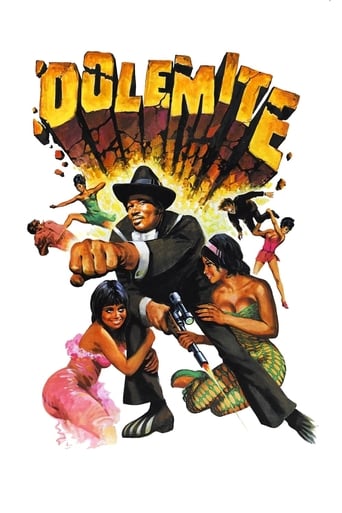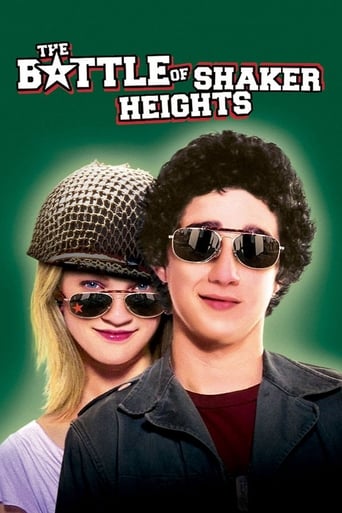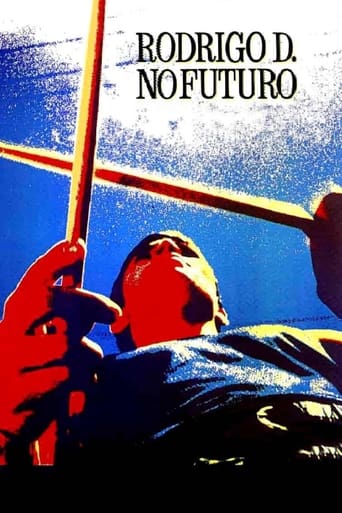
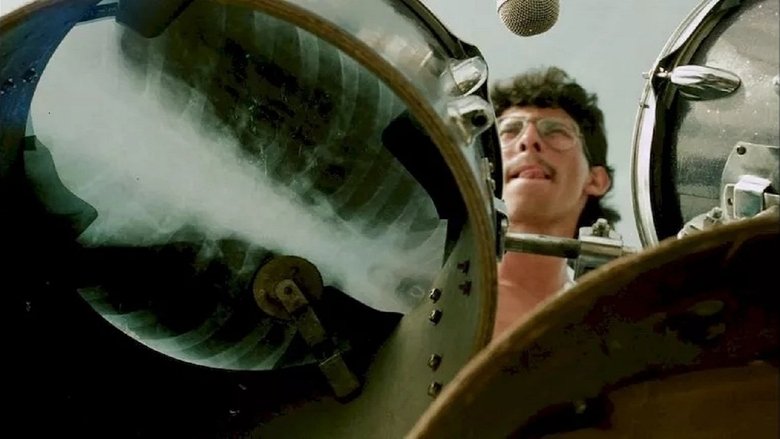
Rodrigo D. No Future (1990)
Rodrigo is a marginalized and lonely being who prefers to die before being forced to kill. He finds himself trapped in a city that oppresses him, calls him, marginalizes him.
Watch Trailer
Cast


Similar titles
Reviews
Entertaining from beginning to end, it maintains the spirit of the franchise while establishing it's own seal with a fun cast
Yo, there's no way for me to review this film without saying, take your *insert ethnicity + "ass" here* to see this film,like now. You have to see it in order to know what you're really messing with.
Tells a fascinating and unsettling true story, and does so well, without pretending to have all the answers.
One of the worst ways to make a cult movie is to set out to make a cult movie.
Rodrigo and his friends are bored teenagers living in Medellin. Rodrigo wants to start a punk band. The youths mainly loaf around the hillside shanty towns and, for kicks, steal a bike or car, or shoot someone.This film really grabbed me. Not necessarily for any specific reason, but more for the overall concept. One, you have the setting in Medellin. For me, that is synonymous with the drug cartel. And at the time this film was released (1990), I am sure that is exactly what it was going for.Also, the punk rock scene. This is probably naive on my part, but I don't generally think of punk music as being so international. I know there are punk bands everywhere, but it seems odd to have one as the focus of a South American movie. Maybe that's normal. But this surprise is what really made this a great film for me.
There is no linear story to be found in this documentary style film from director Victor Gaviria, so fans of typical mainstream style films probably will not like this, very important film. "Rodrigo D. No Futuro" is basically a glimpse into the lives of a group of Medellin teenagers, living a pointless existence. With no opportunity for work, or escape, they spend their days hanging out in the streets, drinking, and sometimes robbing people who they see as being in a better position than themselves. Never having money unless they rob someone or sell some stolen goods, they have nothing, and nothing to lose. Rodrigo, according to his sister, is a bum, with no ambition, and no purpose in life. This is not really true, as he does have one dream, and that is to start a punk band. To do this, he needs a set of drums. Rodrigo is a likable character, and we want this guy to somehow realize his dream, to get his drums, to form the band, and to possibly find the way out of a bleak situation. But as the film goes on, we see that this will not be, for any of the young people in this place. As far as a story goes, that is pretty much it. The director, rather than casting professional actors, instead used real teenagers, from the barrio in which this is filmed. Of all the kids featured here, only the main actor, Ramiro Meneses continued to make films after this one. Four of the others died shortly after completion, murdered some say, because of their involvement with this film. I believe that fact makes this movie all the more important, as these guys should not be forgotten, and their stories and lives should reach the attention of as many people as possible. Everyone turns in great and powerful performances. There are scenes of the kids interacting with their families and friends, and although they have so little in the way of material things, they do seem to have some feeling of family in their community, as everyone lives so close to each other. The landscape of the environment is that of a brutal, treeless urban desert, with the hot Colombian sun forever beating down, adding to the general feeling of hopelessness that this film has. There are no artistic camera angles, no scenes of typical artistic merit, and I believe this to be intentional. The tone and style simply reflects the lives of these teenagers. Some complain that it is unfocused, and that nothing happens in the course of it's 90 minute running time. But that is the point, to show lives with no focus or direction, or future. Rodrigo D. has a small cult following among punk rockers, and for good reason. There is some good street punk music throughout the movie, and the main characters are punks, listening to and wearing t-shirts of bands like Sex Pistols and Exploited. And there are so many great scenes, like the band rehearsal in the hills, and 'Little John's' funeral, and the scenes of Rodrigo arguing with his sister, or his dad, who is forever trying to talk some sense into his rebellious son. And Rodrigo is forever banging his drumsticks on walls, and everywhere else, always trying to get those drums. But he never does, there is no happy ending. I recommend this film to people who are interested in looking beyond their own lives and worlds, to see other cultures, and to understand their struggles and dreams. Unfortunately this is a hard title to find, but if you get the chance, see this special film.
After a long and, I have to admit, exhausting pursuit I finally laid my hands on a bad VHS copy of this old Colombian film about troubled teenage boys on the streets of Medellin slums. Highly recommended by quite a few people with similar taste in movies as mine, I was expecting a hidden gem, an accurate representation of everyday issues of youth life in a third world country's poor neighborhoods. Gee, what a shock it was to see this film has none of what I hoped to find in it. The title implies it should be about a certain Rodrigo, teenage school drop out growing up in a shanty town of Medellin with nothing but crime and aimlessness all around him, finding his only release in a dream of being a drummer in a punk rock band. If the director decided to follow Rodrigo's story, with an emphasis on his broken home and the reasons why he does ( or doesn't ) the things he does maybe the final result would've been at least an average motion picture. But instead of concentrating on Rodrigo's story and the gradual unfold toward his tragic ending, director Victor Gaviria goes with a stack of more or less uninteresting characters, grinding the storyline into incoherent pieces with no practical value for the viewer. I say uninteresting characters because we get to know absolutely nothing about them. Where do those kids come from? Where are their families? How in the world are they surviving? What is the reason for their apathy towards the world? The vague clues to those questions are placed here and there in course of the movie but they surely don't clarify the path those youths decided to take. Gaviria's piece has a lack of fundamental part in storytelling : humane characters. No matter of their nature, one as a viewer has to be able to understand their motivations, open the door into their lives to be able to comprehend it. You will get nothing of that in "Rodrigo D-No Futuro". The script is not in place either as I was struggling to keep my concentration until the very end. I have nothing against slow plots if they serve the purpose but this just drags on forever and one gets a feeling of pressing the eject button and throwing away this whole nonsense. From the 10th minute until approximately 85th you know nothing more than you did at the initial point. Just a perpetual motion on bunch of kids loafing around, wasting time, stealing vehicles, drinking, smoking pot..and listening to some really amateur, awful punk rock. What surprises me about "Rodrigo S" is a fact that supposedly it has a small, but devoted following among punk rockers and it doesn't even do the iconographic part of the job right. Since when do punk rockers wear t-shirts with swastikas?? I always thought punk rock movement is rigidly anti Nazism and I know for a fact that just a small outcast group of punk rockers( called skinheads ) embraced Hitler's ideology of hate. I don't know, maybe at the time when the film was made it was different in Colombia than here in the Western civilization. As I stated earlier, the characters are dispersed between limited screen time and therefore completely uninteresting since this should be a story about human lives, not a Steven Seagal flick where rationale does not matter. When the fateful events occur at the end of the movie you don't know what's going on nor why it happened. I've seen more than a few Latin American films that deal with the similar subject in a superior way ( Cidade de Deus, Pixote, 1st story of Amores Perros, Bus 174 ).... Gaviria's grave mistake with "Rodrigo" is not knowing what he wants the film to be : a pseudo-documentary with no content or a movie with documentary feel and no storyline??!! Whatever he had in mind did not work for me as I felt betrayed instead of touched as I should be. If you still want to see it go ahead but don't expect poignancy as you will not get it. "Rodrigo" could've been a much better movie if placed in the hands of a director with a vision, sensibility and dexterity of telling a story about unfortunate kids trying to swim in a hollow pool of nothingness...Not recommended ( 4/10 )
This is a brilliant movie about Rodrigo and his friends, a group of punks who wander the streets of Medellin, getting high, stealing cars, listening to Punk and Heavy Metal music. They're stuck in lives of poverty, with no opportunities and no motivation to try to improve their lives. Their routine is interrupted only when the cops catch up with one of them (which is really an inevitability for all of them, sooner or later), or they get into a fight. Rodrigo dreams of starting a rock band, something that might give his life some meaning (he has no education beyond the 1st grade, has no job, and basically sits around the house all day listening to his family complain about how lazy he is). The movie depicts the world of Rodrigo and his friends with harsh realism, accompanied by striking cinematography, pulsing rock music, and a script with an ear for how these people communicate. While this movie is clearly influenced by "Los Olvidados," it also bears a resemblance to Alex Cox's great "Sid and Nancy" - we are invited to see the world in which these young rebels live, and to understand the ways in which it can destroy them.


